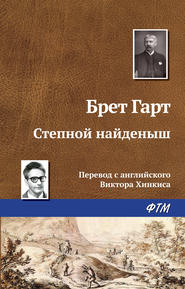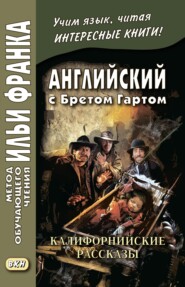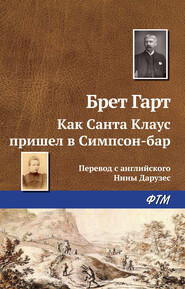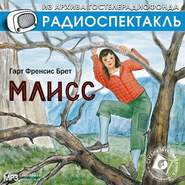По всем вопросам обращайтесь на: info@litportal.ru
(©) 2003-2025.
✖
Gabriel Conroy
Автор
Год написания книги
2017
Настройки чтения
Размер шрифта
Высота строк
Поля
"Oh!" said Arthur, relapsing into his professional attitude again.
"Proofs," repeated Donna Dolores, hurriedly. "Is it not enough that she has married this Gabriel, her brother?"
"That is certainly strong moral proof – and perhaps legal corroborative evidence," said Arthur, coolly; "but it will not legally estop her proving that she is his sister – if she can do so. But I ask your pardon – go on!"
"That is all," said Donna Dolores, sitting up, with a slight gesture of impatience.
"Very well. Then, as I understand, the case is simply this: You hold a grant to a piece of laud, actually possessed by a squatter, who claims it through his wife or sister – legally it doesn't matter which – by virtue of a bequest made by one Dr. Devarges, who also held a grant to the same property?"
"Yes," said Donna Dolores, hesitatingly.
"Well, the matter lies between you and Dr. Devarges only. It is simply a question of the validity of the original grants. All that you have told me does not alter that radical fact. Stay! One moment! May I ask how you have acquired these later details?"
"By letter."
"From whom?"
"There was no signature. The writer offered to prove all he said. It was anonymous."
Arthur rose with a superior smile.
"May I ask you further, without impertinence, if it is upon this evidence that you propose to abandon your claim to a valuable property?"
"I have told you before that it is not a legal question, Don Arturo," said Donna Dolores, waving her fan a little more rapidly.
"Good! let us take it in the moral or sentimental aspect – since you have purposed to honour me with a request for my counsel. To begin, you have a sympathy for the orphan, who does not apparently exist."
"But her brother?"
"Has already struck hands with the impostor, and married her to secure the claim. And this brother – what proof is there that he is not an impostor too?"
"True," said Donna Dolores, musingly.
"He will certainly have to settle that trifling question with Dr. Devarges's heirs, whoever they may be."
"True," said Donna Dolores.
"In short, I see no reason, even from your own view-point, why you should not fight this claim. The orphan you sympathise with is not an active party. You have only a brother opposed to you, who seems to have been willing to barter away a sister's birthright. And, as I said before, your sympathies, however kind and commendable they may be, will be of no avail unless the courts decide against Dr. Devarges. My advice is to fight. If the right does not always succeed, my experience is that the Right, at least, is apt to play its best card, and put forward its best skill. And until it does that, it might as well be the Wrong, you know."
"You are wise, Don Arturo. But you lawyers are so often only advocates. Pardon, I mean no wrong. But if it were Grace – the sister, you understand – what would be your advice?"
"The same. Fight it out! If I could overthrow your grant, I should do it. The struggle, understand me, is there, and not with this wife and sister. But how does it come that a patent for this has not been applied for before by Gabriel? Did your anonymous correspondent explain that fact? It is a point in our favour."
"You forget —our grant was only recently discovered."
"True! it is about equal, then, ab initio. And the absence of this actual legatee is in our favour."
"Why?"
"Because there is a certain human sympathy in juries with a pretty orphan – particularly if poor."
"How do you know she was pretty?" asked Donna Dolores, quickly.
"I presume so. It is the privilege of orphanage," he said, with a bow of cold gallantry.
"You are wise, Don Arturo. May you live a thousand years."
This time it was impossible but Arthur should notice the irony of Donna Dolores's manner. All his strong combative instincts rose. The mysterious power of her beauty, which he could not help acknowledging, her tone of superiority, whether attributable to a consciousness of this power over him, or some knowledge of his past – all aroused his cold pride. He remembered the reputation that Donna Dolores bore as a religious devotee and rigid moralist. If he had been taxed with his abandonment of Grace, with his half-formed designs upon Mrs. Sepulvida, he would have coldly admitted them without excuse or argument. In doing so, he would have been perfectly conscious that he should lose the esteem of Donna Dolores, of whose value he had become, within the last few moments, equally conscious. But it was a part of this young man's singular nature that he would have experienced a certain self-satisfaction in the act, that would have outweighed all other considerations. In the ethics of his own consciousness he called this "being true to himself." In a certain sense he was right.
He rose, and, standing respectfully before his fair client, said —
"Have you decided fully? Do I understand that I am to press this claim with a view of ousting these parties? or will you leave them for the present in undisturbed possession of the land?"
"But what do you say?" continued Donna Dolores, with her eyes fixed upon his face.
"I have said already," returned Arthur, with a patient smile. "Morally and legally, my advice is to press the claim!"
Donna Dolores turned her eyes away with the slightest shade of annoyance.
"Bueno! We shall see. There is time enough. Be seated, Don Arturo. What is this? Surely you will not refuse our hospitality to-night?"
"I fear," said Arthur, with grave politeness, "that I must return to the Mission at once. I have already delayed my departure a day. They expect me in San Francisco to-morrow."
"Let them wait. You shall write that important business keeps you here, and Diego shall ride my own horse to reach the embarcadero for the steamer to-night. To-morrow he will be in San Francisco."
Before he could stay her hand she had rung a small bronze bell that stood beside her.
"But, Donna Dolores" – Arthur began, hastily.
"I understand," interrupted Donna Dolores. "Diego," she continued rapidly, as a servant entered the room, "saddle Jovita instantly and make ready for a journey. Then return here. Pardon!" she turned to Arthur. "You would say your time is valuable. A large sum depends upon your presence! Good! Write to your partners that I will pay all – that no one else can afford to give as large a sum for your services as myself. Write that here you must stay."
Annoyed and insulted as Arthur felt, he could not help gazing upon her with an admiring fascination. The imperious habit of command; an almost despotic control of a hundred servants; a certain barbaric contempt for the unlimited revenues at her disposal that prompted the act, became her wonderfully. In her impatience the quick blood glanced through her bronzed cheek, her little slipper tapped the floor imperiously, and her eyes flashed in the darkness Suddenly she stopped, looked at Arthur, and hesitated.
"Pardon me; I have done wrong. Forgive me, Don Arturo. I am a spoiled woman who for five years has had her own way. I am apt to forget there is any world beyond my little kingdom here. Go, since it must be so, go at once."
She sank back on the sofa, half veiled her face with her fan, and dropped the long fringes of her eyes with a deprecating and half languid movement.
Arthur stood for a moment irresolute and hesitating, but only for a moment.
"Let me thank you for enabling me to fulfil a duty without foregoing a pleasure. If your messenger is trustworthy and fleet it can be done. I will stay."
She turned towards him suddenly and smiled. A smile apparently so rare to that proud little mouth and those dark, melancholy eyes; a smile that disclosed the smallest and whitest of teeth in such dazzling contrast to the shadow of her face; a smile that even after its brightness had passed still left its memory in a dimple in either nut-brown cheek, and a glistening moisture in the dark eyes – that Arthur felt the warm blood rise to his face.
"There are writing materials in the other room. Diego will find you there," said Donna Dolores, "and I will rejoin you soon. Thanks."
She held out the smallest and brownest of hands. Arthur bent over it for a single moment, and then withdrew with a quickened pulse to the outer room. As the door closed upon him, Donna Dolores folded her fan, threw herself back upon the sofa, and called, in a quick whisper —
"Manuela!"

















